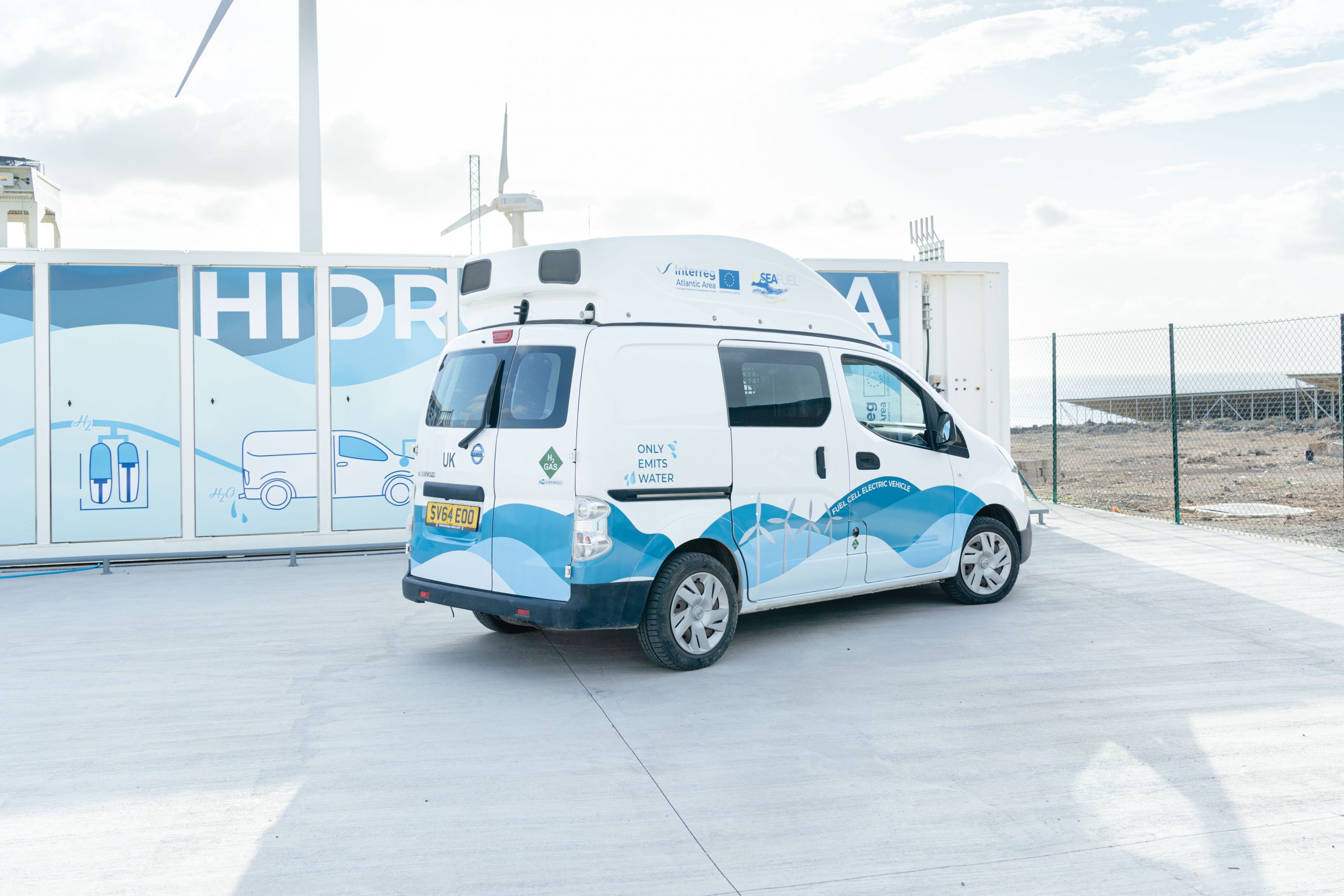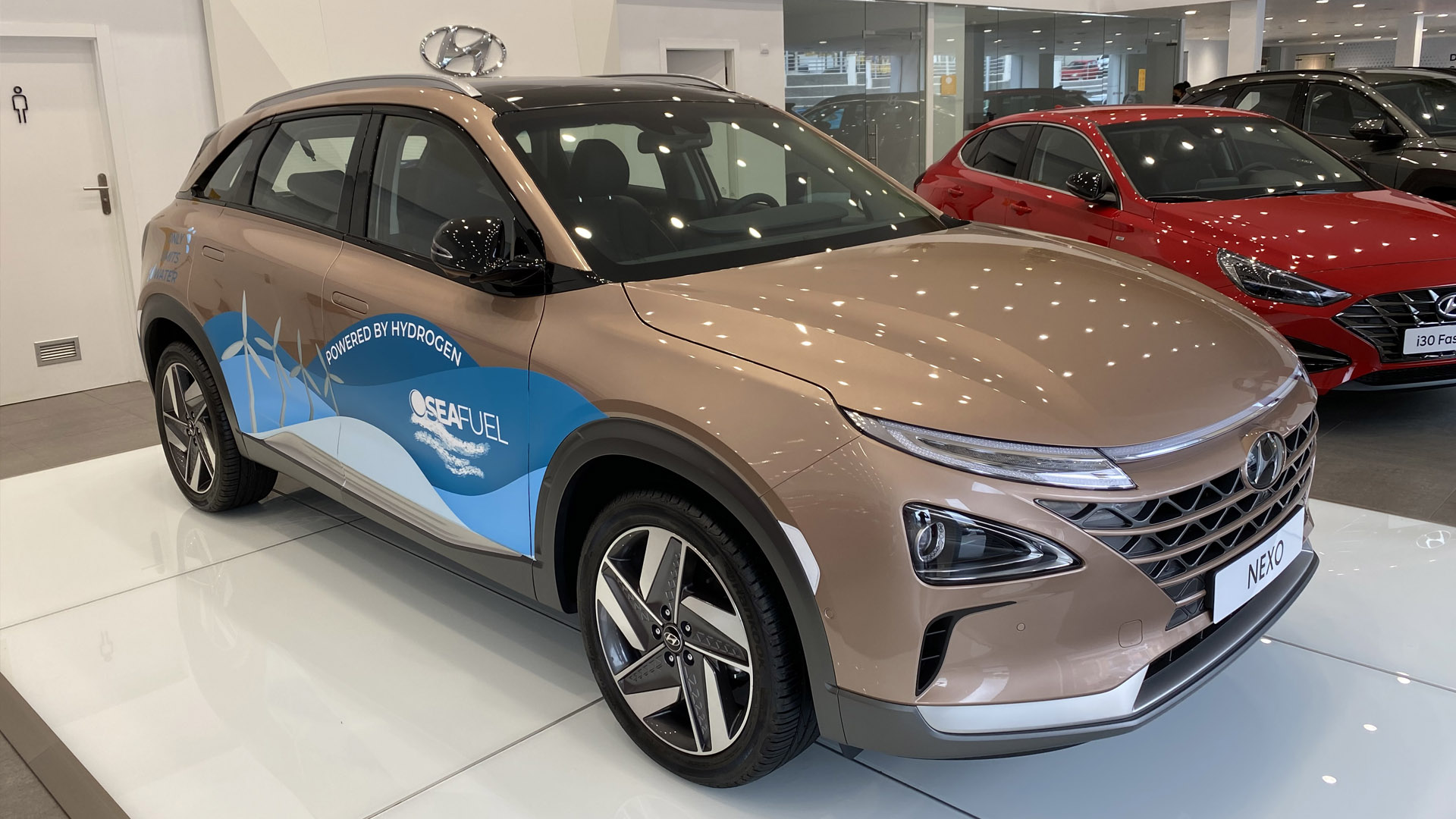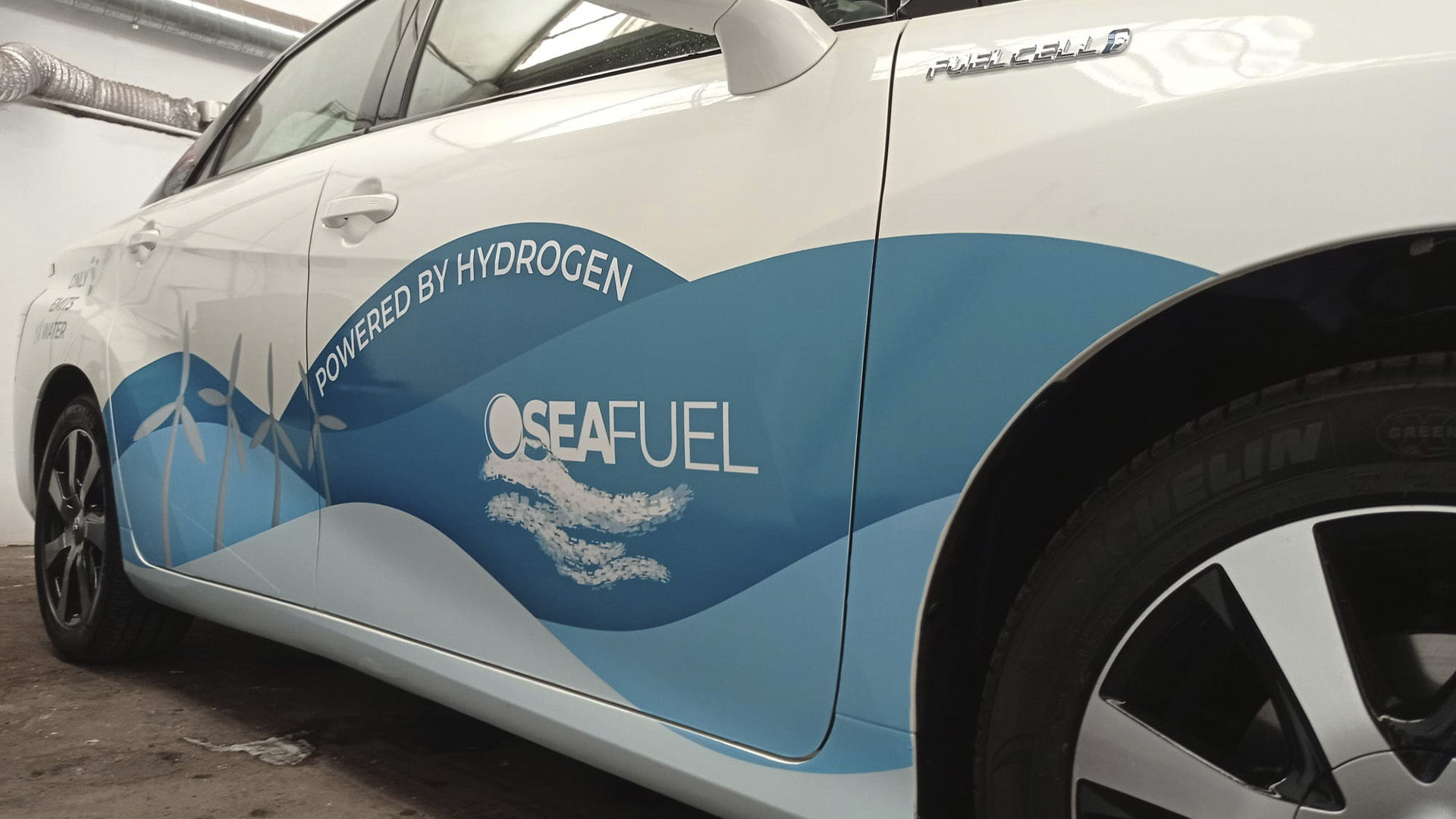SEAFUEL FLEET
Sustainable integration of renewable fuels in local transportation
In the Canary Islands, land transport accounts for 30% of energy demand, being one of the main sources of emissions.
The SEAFUEL fleet includes 8 hydrogen vehicles
The island of Tenerife has been chosen as the project demonstration base. The Institute of Technology and of Renewable Energies will replace part of the diesel fleet with hydrogen vehicles aiming to reduce its dependence on fossil fuels by more than 50%.
The vans
Five of them will be hydrogen fuel cell range extended electric vehicles, designed to provide a practical daily range for load carrying requirements. The range extending power module is attached to the roof of the van. Inside this is the 8kW Fuel Cell, DCDC Converter, 350bar 74L Hydrogen Tank, Cooling System, and Air Intake System.
The extra range is provided by the fuel cell, which means that the vehicle remains zero emissions (only water is emitted). As the fuel cell generates electricity to power the vehicle and recharge the battery, range is only limited by the proximity to a hydrogen refuelling station. A 74L hydrogen fuel tank has been used to double the range, this can be filled in less than 5 mins, giving fast and convenient access to increased range.
The van includes a HMI which displays the relevant information to the user.

The passenger cars
The project will also have FCEV cars, to conduct the socio-economic studies. These vehicles will be passenger vehicles, used as a complement to the questionnaires aimed at tourists visiting the island or locals who regularly hire cars. The respondents will have the opportunity to do a short test drive and experience the fuelling process.


The SEAFUEL fleet will charge in the hydrogen fuelling station based in the south of the island of Tenerife. The fuelling station will be powered by the available renewable energy resources installed at ITER to produce enough green hydrogen.


